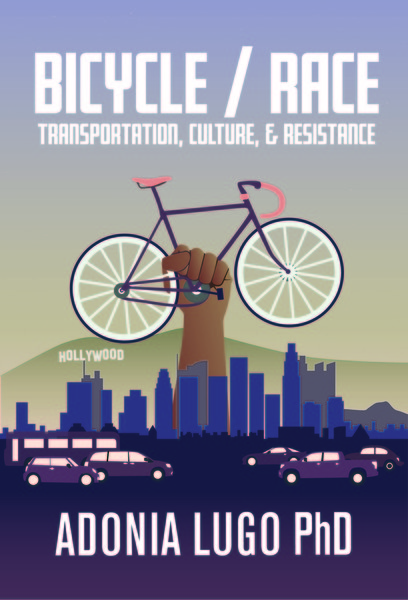In the last five days, two motorists have hit pedestrians crossing a street around the
corner from my home. The street has sharrows and on street
parking. I cross that street often, and I know that people routinely
drive over the speed limit. I have to wait long intervals to cross at unmarked crosswalks because drivers choose not to stop. I have a hard time believing that flawed street design is to blame for these incidents. I think, actually, there are two motorists who are to blame.
In a recent academic article, sociologist Deborah McCarthy reported that people who use bikes to get around in Charleston, South Carolina, a city with less than four miles of bike lanes, said that their risk as cyclists comes from driver aggression, not a lack of bike infrastructure. McCarthy seemed skeptical about this finding, suggesting that it may not be valid. But are those cyclists wrong? Why do we pretend like motorist behavior isn't
the problem? Isn't the goal of infrastructure to control behavior?
If a road diet or traffic calming causes motorists to slow down, it's
because they have accepted that they are sharing a road (or have
accepted that they need to drive on a different road). I've walked and biked in a lot of cities, and I can tell you that a huge part of what makes bicycling in Portland easier than biking in other cities is that motorists often give me the right of way. They drive slowly, they stop when they see me. Even though Portland gets mentioned quite a bit as an example of good bike infrastructure, people don't usually mention driver behavior.
Transportation research often focuses on the built environment instead of on individual bodies making decisions that impact the people around them. This makes traffic crashes into the fault of some design rather than the fault of someone. The attitude that drivers can somehow yield responsibility for their actions to street design dehumanizes us all. Even the way we talk about crashes reinforces this; do you say "the driver hit the pedestrian" or "the pedestrian got hit by a car"? Jackson Katz, an anti-gender violence activist, advocates for changing the way we talk about violence against women so that it is clear who is responsible: "he beat her" versus "she was a battered woman." In the case of traffic violence, why are we so willing to leave the motorist out of the equation, and often flat out blame the victim for being in the wrong place at the wrong time?
We expect transportation infrastructure to keep us safe. But people seem to go too far and expect individual behavior to remain constant so that we can all just interact with traffic signals and not each other. Guess what, people do unexpected stuff; that's why driving at high speed through residential areas is a bad idea. Biking and walking infrastructure that works trains people to use streets differently. It's not that it finally and forever separates people outside of cars from people inside of cars. Traffic is people.

